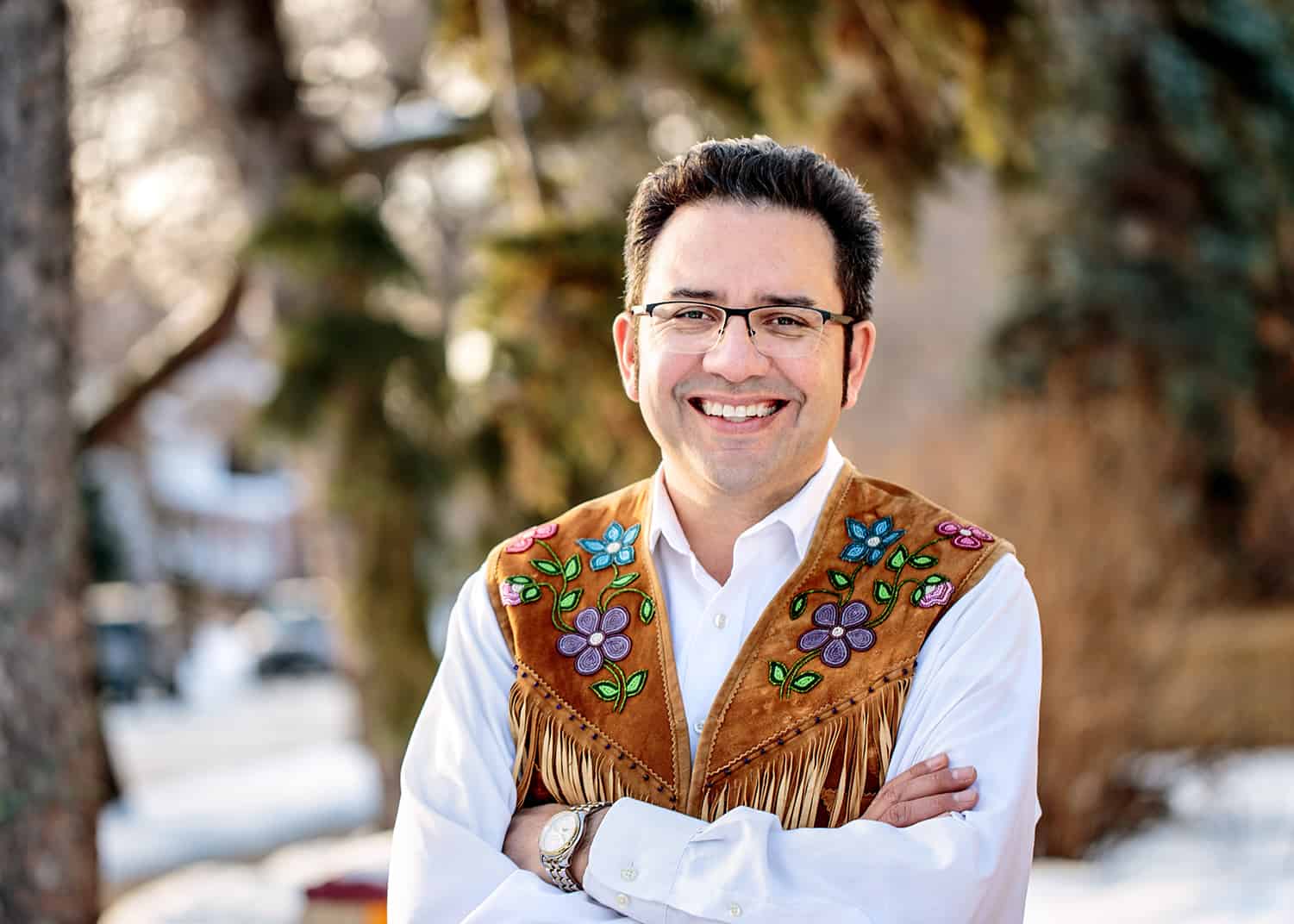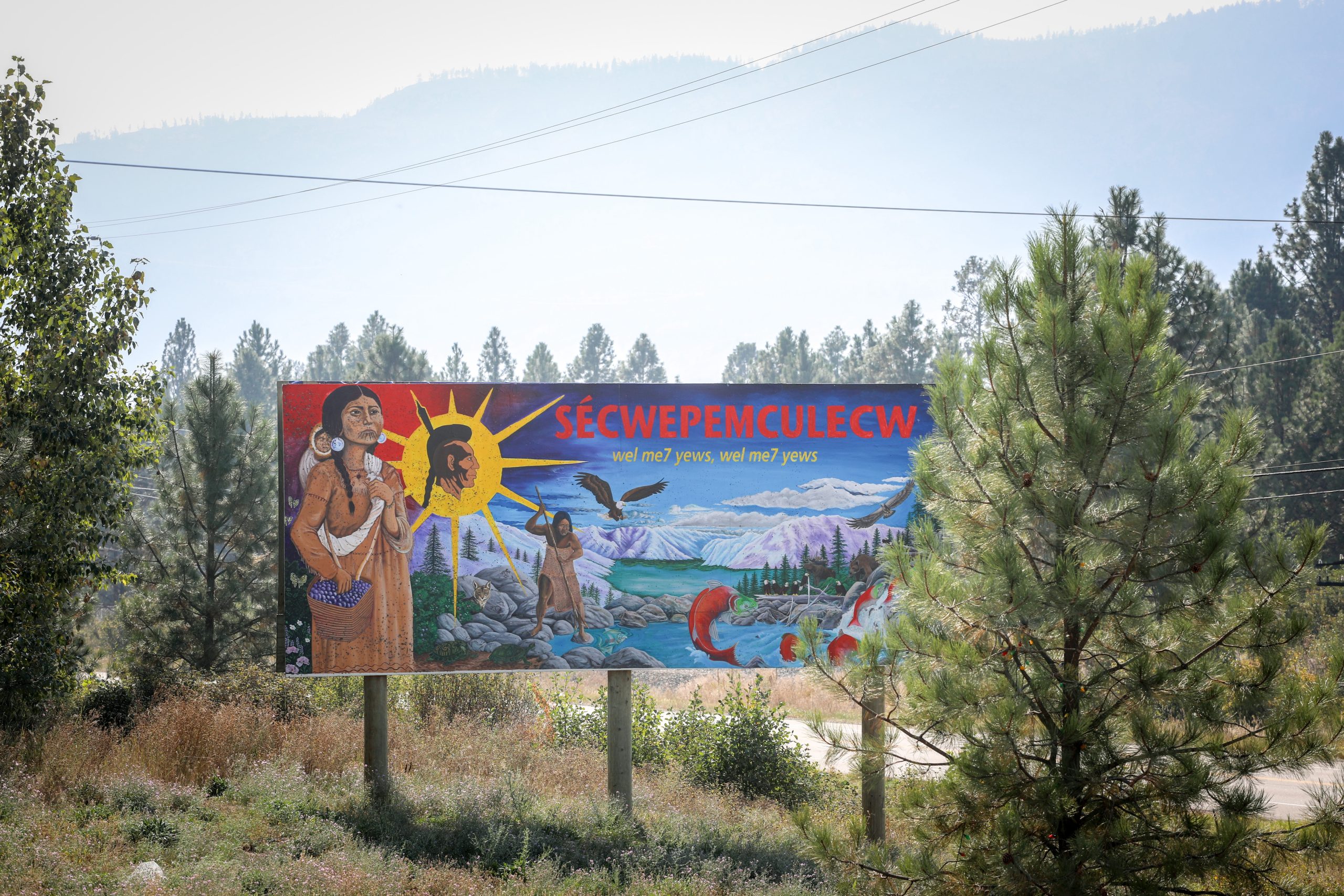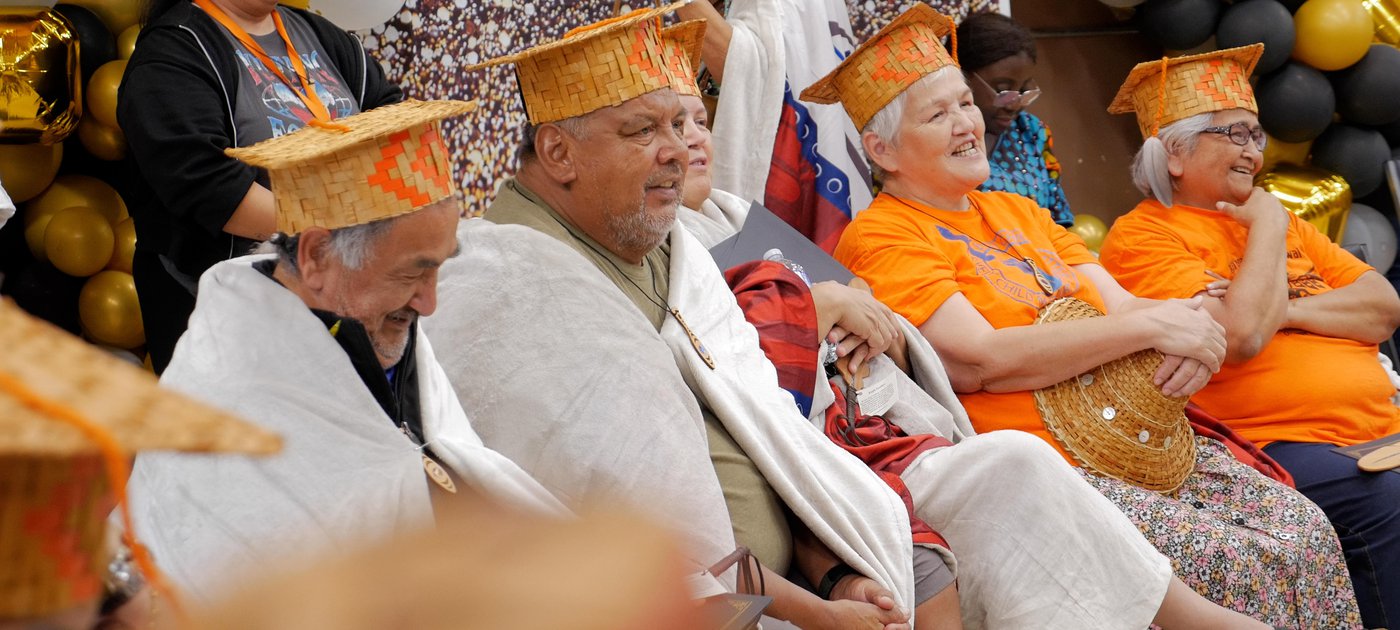Creative writing series engages next generation of Indigenous storytellers
Tłı̨chǫ Dene author Richard Van Camp mentors Indigenous youth and young adults

Aimee Chalifoux says that when she was growing up in foster care, books were her “getaway.”
“My passion is writing and books. Anything to do with writing stories, poetry,” says Chalifoux, who is Métis, Cree and Saulteaux. “It’s my playground. That’s where I come alive.”
Chalifoux envisioned and created a free virtual workshop series on creative writing and storytelling for First Nations, Métis and Inuit youth and young adults, through Literacy Central Vancouver Island (LCVI), where she works as the Indigenous literacy coordinator.
LCVI partnered with the Mid-Island Métis Nation to create this series, which launched March 7 and will run until March 28.
Through the series, young writers can connect with and be mentored by celebrated Indigenous author Richard Van Camp.
Van Camp, who is Tłı̨chǫ Dene, is the author of 24 stories, including The Lesser Blessed, The Moon of Letting Go, and Moccasin Square Gardens. Van Camp has also written many children’s books.
“I’m so happy to be here and help because I have been given so much by my craft and writing community,” Van Camp tells IndigiNews.
“We are living now in a time of incredible reclaiming. So many of us as Indigenous people are reclaiming our languages, cultures, and teachings. There is a huge inheritance of literature, movies and stories out there just waiting for you to see yourself.”
For Chalifoux, writing was a way to vent and hide from the pain she was experiencing.

“I never believed that sharing my writing could ever have had an effect on people the way that I’ve been affected by writers like Richard Van Camp, Lee Maracle, Maria Campbell … all the greats,” she says.
“They spoke directly to my heart.”
Chalifoux says that their work gave her permission to share her story, and that she wants to do the same for Indigenous youth by creating a space for them to explore their writing.
“How many other Indigenous youth out there do all this writing, but they’re not sure if it’s good enough?”
Van Camp has a similar message for Indigenous youth: “It’s time to celebrate you as an Indigenous artist,” he says. “There are so many mentors and helpers and cheerleaders out there to help you on your way.”
At the first of the four sessions, Van Camp created space for youth to share their stories, Chalifoux says.
“He’s basically guiding us through writing our own piece and how to be storytellers,” says Chalifoux. “There’s power in that sharing.”
It’s not too late to join the workshop, says Chalifoux. The free series is open to First Nations, Métis and Inuit youth and young adults via Zoom. LCVI offers additional programs and resources for Indigenous youth to express themselves creatively, including in PLACE magazine.
Author
Latest Stories
-
‘Bring her home’: How Buffalo Woman was identified as Ashlee Shingoose
The Anishininew mother as been missing since 2022 — now, her family is one step closer to bringing her home as the Province of Manitoba vows to search for her
-
‘No trust’: Neskonlith members seek answers as tensions climb amid firings, lawsuit
Indigenous Services confirms complaint filed, as Secwépemc community embroiled in allegations of election fraud, ‘civil conspiracy’
-
shíshálh Nation holds grad ceremony to recognize residential, day ‘school’ survivors
The event honoured the life experiences and strength of survivors, with about 50 people being presented with certificates and cedar caps: ‘We see you, and we see how hard you worked’













